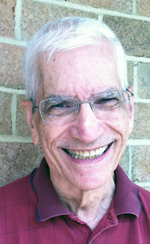By Joel H. Cohen

NEW YORK — The approach of Pesach inevitably evokes a bundle of memories, as many related to haggadahs as to matzah-ball soup
For instance, one year a long time ago, we were expecting a big crowd for the first seder that night. That morning (hate to leave things for the last minute), we agreed that it would be nice if everyone attending had matching haggadahs. And – while I still sort of longed for the wine-stained models of old – we decided on a brightly illustrated, user-friendly one that not only included all the traditional material, but made connections to modern life. “Let freedom ring” and a stanza of “America” were among them.
I called the Manhattan store where we had bought them originally, and the owner said he had them in stock, but only in hardcover. This, I knew, was going to be a costly transaction – considerably more than two zuzzim. But I was already numbed by inflated Pesach food costs, and determined to have everyone on the same page, literally and figuratively.
So I took the long bus, ferry and subway trip from Staten Island to Manhattan, where the bookseller reported that, since our phone conversation, he’d located the haggadah in paperback, so the bill was considerably less than anticipated.
It should not be remarkable that someone acts so honorably when he doesn’t have to, but maybe because it’s so rare, it is remarkable.
Not as far back as that Pesach, a light-hearted tradition of ours in recent years was to start off with the story of Queen Elizabeth II inspecting a company of knights. One after another has shiny armor, a sharp-looking helmet and a neatly combed plume. But one chap in the back of the formation has rusty armor, a helmet that’s tilted and a tattered plume. The queen turns to Prince Philip and says (often in Hebrew), “Why is this knight different from all other knights?”
The familiar tale is greeted with universal groans, but it’s a great unifier, and gets the seder off to a happy start.
Over time, we’ve made some small adjustments, for instance changing the “four sons” to “four children,” and have even invited a couple of that foursome to conduct the seder.
One year, young women read some excerpts from a feminist haggadah, but even they admitted it was too far out.
During one festive meal, they told a Russian wife new to the U.S. she could definitely have her name as co-owner of a bank account or even have an account of her own. “Not so good for me,” her Russian husband joked.
Our best guest for years was a non-Jewish young woman, a college friend of our daughter’s, who was inevitably respectful, posed the best questions and never asked – at least, not out loud – “When do we eat?”
One year, when the door was opened for Elijah, standing outside it were our then young son and next-door buddy pretending to be visiting prophets.
Yet our seders always did have their share of seriousness — the plagues, of course, and testaments to the Holocaust and other catastrophes, some years in a writing by Elie Wiesel, other times the traditional “City of Slaughter” by Bialik.
On the lighter side, in an homage to relatives long gone, a few of us have always participated to the end (matzah-kists?), and sung every song in the haggadah – from Dayenu and Addir Hu through Chad Gadya –generally off-key, but still fitting, rousing tributes.
This Pesach, we’re attending both seders at our shul. Whatever haggadah is used, I’ll be thinking of wine-stained, ancient models — and a businessman who did the honorable thing even when he didn’t have to.
Wish you a happy Pesach and very pleasant seder memories.
*
Cohen is a freelance writer based in New York. He may be contacted via joel.cohen@sdjewishworld.com